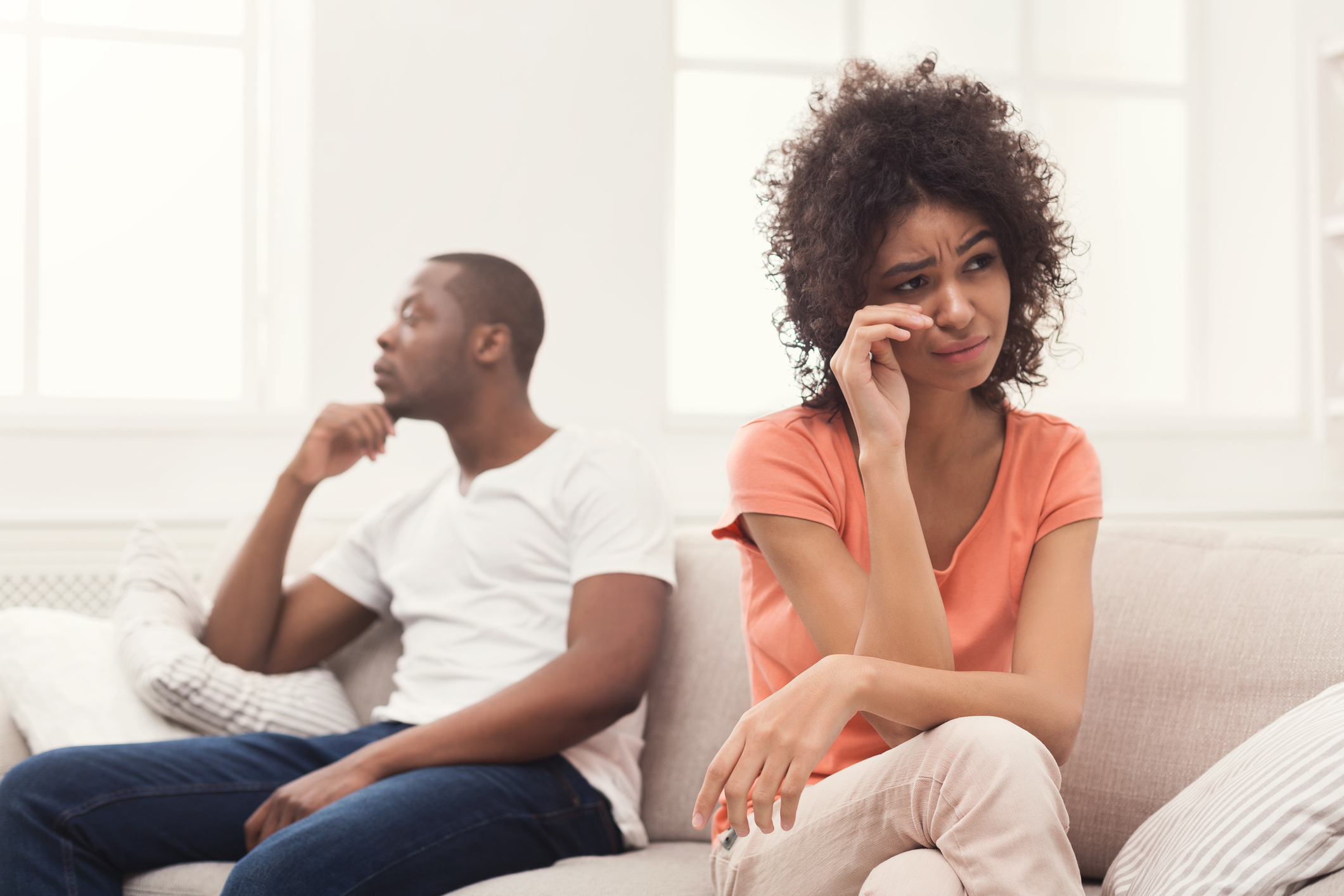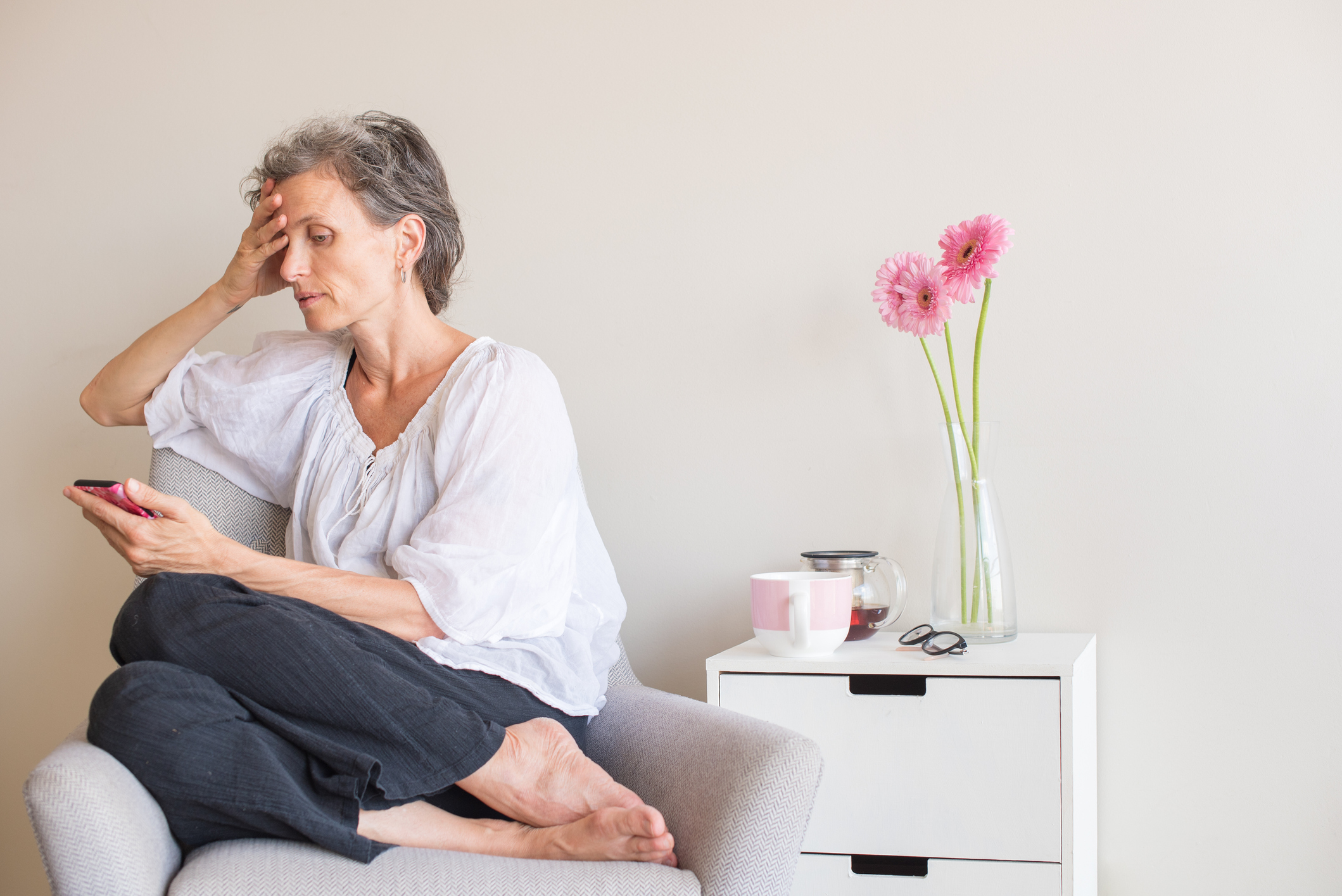Everything You Need to Know About Your Low Libido
More people experience low libido than you might think! It can be a hard topic to talk about, but lots of women go through dips in their sexual drive throughout their lives, whether short-term, or for longer periods. There are many reasons sexual engagement can falter, and they are as varied as the people who experience it. We’re here to help you learn about what you’re experiencing, and what you can do about it!
It can be easy to ignore symptoms of low libido. If you have trouble getting in the mood and would rather do dishes or catch up on Netflix than spend some quality bedroom time, it may be something you can relate to.
Table of Contents
- What exactly is low libido?
- Why is an active sex life important?
- What can cause a low libido?
- Strategies to improve your libido
Although experiencing low libido can be hard on both you and your partner, it’s important to recognize how common this condition is for aging men and women to experience. If you find yourself asking the question, “why do I have a low libido?” it could be due to your habits and lifestyle—and the good news is that habits and lifestyle are not permanent! Low libido is actually very addressable.
Let's help you make sense of it all if you're having some trouble pinning down the culprit!
What makes a libido low?
Everyone is unique in their experiences, lifestyles, and their particular habits, even when it comes to sex! It’s important to reflect on your sexual history and trends when considering if you might be experiencing low libido. If it’s unusual for you to struggle to be in the mood for sexual activity of any kind, and you’re finding yourself disconnected from sexual desire, then you could be experiencing low libido.
Low libido’s technical name is “hypoactive sexual disorder”, or HSDD. It can be difficult to diagnose HSDD because of so many variances in women's’ experiences and baseline sex drives. However, there are a few signs that can point to HSDD: an unusual or prolonged lack of interest in sexual activity, either partner-based or solo, a lack of sexual fantasies, and an absence of pleasure during sexual activity.
While it’s natural to experience fluctuations in sexual interest throughout different life periods, if you’re experiencing a consistent lull in sexual interest or engagement, it might be something to start examining, or address with your doctor.
How low libido can affect you
Having low libido can cause you significant emotional distress. For many women, sexual activity is a regular part of life, and the inability to have sex without pain or the lack of interest in sex is deeply concerning.
Additionally, having decreased libido may strain your relationship with one or more sexual partners. Your partner may express frustration or hurt if they feel that they are unable to meet your sexual needs, and vice versa. Sometimes, these problems may need sexual and/or relationship therapy to work through.
Why is an active sex life important?
Our views on holistic health mean that all aspects of your life are synergistically connected; different aspects of your life can affect each other, and your overall wellness and happiness. An active and healthy sex life is part of that journey. While there are plenty of folks who experience a general low or lack of sex drive, like those who identify as part of the Asexual community, people who have experienced active sexual interest in the past are not usually among them.

If sexuality is something that has fallen out of your day-to-day routine, then it can mean that something else is off in your world. Changes in sexual drive can indicate other mental or emotional issues like stress, grief, anxiety, relationship issues, or frustration are going unresolved, or there can be an underlying medical issue like changes in hormones.
An active sex life can contribute to your fitness, your self-esteem, and provide beneficial endorphins to keep you smiling. In short, in a healthy and loving environment, it’s fun and good for you! In most long-term romantic relationships, sex is an integral part of maintaining your intimate bond with your partner, and showing them your appreciation for and attraction to them. If you don’t have a current intimate relationship, sexual activity on your own can still have many health and self-esteem benefits.
What can cause a low libido?
Low libido, or HSDD, can be experienced in as many unique ways as the women are themselves. There are commonalities, however, in the different causes that have been identified for HSDD in some people. There are many different ways to improve your lifestyle, and if one aspect is detrimental, it could be affecting your ability to feel sexual. While there are always ways to feel good and live well, it takes time and energy to make changes! Adjusting your habits is a worthy goal, and in the process, you may find that your sex drive becomes more active as well.
Not enough exercise
It’s true - your physical health can affect your libido. Many people experience mental, physical and scheduling barriers to fitness, but making a small change can make a big difference. Getting your heart rate up every day is much more likely to help you get your pulse racing in the bedroom. Just like sex, exercise can increase your endorphins, so keeping your body active is a great way to activate your sex drive. Getting outside is especially helpful - many studies show that contact with nature is physically and mentally beneficial, so even a light walk can be a great place to start!
Poor sleep
Sleep is incredibly crucial to your day-to-day functioning, and if you’re not getting 6-8 hours, it’s no surprise you might feel more like a nap than a quickie! Sometimes sleep issues can’t be helped, like when you’re parenting a newborn, but if you’re struggling with getting to sleep or sleep quality, you may want to explore natural options for improving your sleep or change your bedtime habits, practice good technology hygiene, and get to bed early.
Stress
Chronic stress increases the amount of cortisol hormone produced in the body. Cortisol creates the "fight or flight" response that we experience and it can be an instant mood killer. Have you ever been stressed about an upcoming move, or big presentation, and found your eye twitching, or your knee jiggling, or just generally found yourself more twitchy? Stress can have a profound effect on your psyche and your body, linking the two detrimentally.

Often, if you’re constantly stressed for prolonged periods, other aspects of your life begin to suffer, your sexual self among them. Luckily, there are many natural options for reducing your stress. Physical practices that take you outside, such as walking, jogging, or hiking, can be highly beneficial, as can yoga or Pilates. Even mindfulness practices such as meditation or journaling can help you organize your stress into more manageable steps. If you’re not preoccupied, it’s a lot easier to focus on other aspects of your life, like your sexual self.
Unforgiving schedules
It’s not sexy to schedule sex, but sometimes you have to prioritize by putting it in your calendar! When your day-to-day is so packed that you fall into bed exhausted, it’s no wonder when the desire or ability to enjoy sexual activity is diminished. If you don’t feel up to sex, you can schedule in intimate time with your partner, for cuddling, massages, or affectionate chats - whatever helps you feel connected to them. Nourishing the bond you share will go a long way towards improving a sexual connection. Likewise, scheduling some time for indulgent self-care, like a long bath with essential oils, can also help you feel like you’re prioritizing your sensual side.
Poor diet
Did you know it’s possible to eat for your libido? Not only is eating certain foods better for your sex drive, but in general, avoiding sugary and processed foods that are closely associated with some of the health problems that inhibit libido, including obesity and type 2 diabetes s a good idea. Eating healthy, whole foods helps you maintain consistent energy levels, and avoid mood and energy crashes. Improvements in your diet can have overall benefits in your life, giving you more energy and better abilities to focus on your goals - including healthy and happy sexual activity.
There are certain foods that are better for libido than others.
Foods that are good for libido include
- Watermelon
- Broccoli
- Eggs
- Ginger
- Lettuce
- Cloves
- Figs
- Green tea
- and many more
There are also foods that should be avoided, like
- Processed breads
- Shrimp
- Microwave popcorn
- Alcohol
- Diet soda
Prescription medications
If your libido has fallen off a cliff in dramatic fashion, it might be time to take a look at the prescription medications you are taking or have started taking recently. Quite often, low libido is a side effect of medications. Certain types of depressants are especially tricky and could lower libido without warning. It’s always best to talk to your doctor about what the best option for you may be, given your particular needs. In some cases, alternative medications may be prescribed to help combat low libido. In other cases, you might have to change part of your lifestyle to get your groove back!

Aging and hormones
Everything shifts throughout different phases of life - including libido. For women especially, as they age and bodies change, so do the hormones which regulate the body’s functions and menstrual cycles. As women enter perimenopause and menopause, fluctuations and dips in hormone levels can have significant effects such as hot flashes, difficulty sleeping, irritability, and a drop in sex drive. Even if one’s sex drive isn’t directly affected, the other symptoms of perimenopause or menopause can be detrimental to intimacy.
Additionally, people who experience conditions with hormonal fluctuation or irregularity can also experience a reduction in libido or other symptoms of HSDD. While menopause is a natural and inevitable - if not necessarily welcome - process, it’s always good to consult with a health professional over any concerns or irregularities. Additionally, it can be possible to mitigate some of the negative effects of perimenopause and menopause with herbal supplementation, a healthy diet, and a regular regime of physical activity.
🔼 BACK TO TOPStrategies to improve your libido
When you or you and your partner are considering different ideas or treatments for reduced or low libido, it’s important that the first thing you consider is communication and emotional care. Sexuality can be a touchy and loaded subject, especially when discussed with other people, with complicated emotions surrounding sexual regularity in a relationship. It can be helpful to acknowledge and communicate any big feelings of shame, frustration, or longing to yourself, and/or your partner. Ideally, communication around this difficult topic can help reach a new level of intimacy and understanding with a valued partner.

Some couples choose to take this work on their relationship to a professional while grappling with libido issues. Certified counselors and sex therapists can provide helpful and valued assistance with resolving conflict, re-igniting sexual desire, and providing care for yourself and your partner during a sensitive time. Often they can provide guidance with exploring other avenues as well.
Many individuals and couples choose to explore the option of supplementation to treat low libido or HSDD. Natural supplements can incorporate plant and adaptogenic ingredients traditionally used as aphrodisiacs which can assist with increasing sexual desire and arousal, sensitivity, and lubrication. Herbal supplements can have a gentler effect than prescription medication, but nevertheless can be extremely effective with many testimonials to their success. Natural supplements can also be extremely helpful for individuals who are experiencing low libido as a side effect of hormonal changes or menopause. Arranging herbal supplements for or with your partner can even be a sexy surprise, or a great gift to show your support and desire for them. It can be extremely effective to incorporate supplements as part of a holistic routine to improve overall health and increase libido.
Working on improving overall health can have beneficial effects on one’s sex drive, especially the physical functions of sexuality. Including a reasonable exercise routine in your day-to-day activity can have significant benefits on your sex life. Exercise-induced endorphins can boost both your mood and your libido, and increased physical activity can also raise energy levels, all of which can benefit your sex life.
Your sleep routine can also be affecting libido. Getting significantly less sleep than the recommended eight hours can impact day-to-day functioning, let alone one’s ability to initiate or enjoy sex. It can be difficult to recover from consistent insufficient sleep. Some circumstances can’t be helped, such as parenting a newborn, but there are methods of improving sleep. If you have control over your bedtime, work on improving your sleep hygeine by putting electronic devices and screens away an hour before bed, reducing caffeinated substances later in your day, and darkening your bedroom completely can help you get to dreamland and stay there.
Additionally, a diet with healthy, whole foods and a reduction in sugary or processed foods can benefit not only overall health and nutrition, but also assist with maintaining stable mood and energy levels. While changing up one’s daily routine to incorporate different activities and choices can initially be difficult, it can be rewarding when it improves other aspects of life, like sexual activity.
Of course, sexuality and intimacy aren’t just a matter of physical improvement; they can have highly mental and emotional components as well. Reducing stress is essential to improving intimate engagement and providing mental room for arousal. Sometimes this can mean a big life change such as adjusting stressful aspects of one’s professional life or adding positive stress-relieving activities. It can be as simple as taking an evening to time out and self-care, starting a yoga routine, or sending kids to their grandparents for a weekend while parents unwind and spend quality time together. However, more serious issues such as depression or extreme fatigue can also be factors. Examining your life for sources of mental load and stress can help you identify issues that may be blocking your ability to feel aroused and sexually engaged, and get you closer to improving your stress, and your sex life.
🔼 BACK TO TOPJoin others who have successfully improved their libido
Many people have been able to improve their libido through various strategies and treatments. If low libido is a part of menopause or other hormone regulation issue, desire can return when hormone levels stabilize over time, or when the issue is treated successfully.

Other individuals have found that when they address the underlying issue interfering with their ability to feel or be sexual, they are able to experience arousal and sexual engagement. This can mean treatment for mental health difficulties, increasing communication and intimacy within a romantic partnership, improving overall physical health, or even simply taking small steps throughout one’s daily life to reduce stress. Often, when taxing or difficult life circumstances shift, it can mean other aspects of life like sexuality are able to blossom and develop.
Folks who have explored lifestyle changes, relationship therapy, and even natural supplementation to assist with libido and physical arousal have found the methods can offer real benefits to their sex lives.


Leave a comment